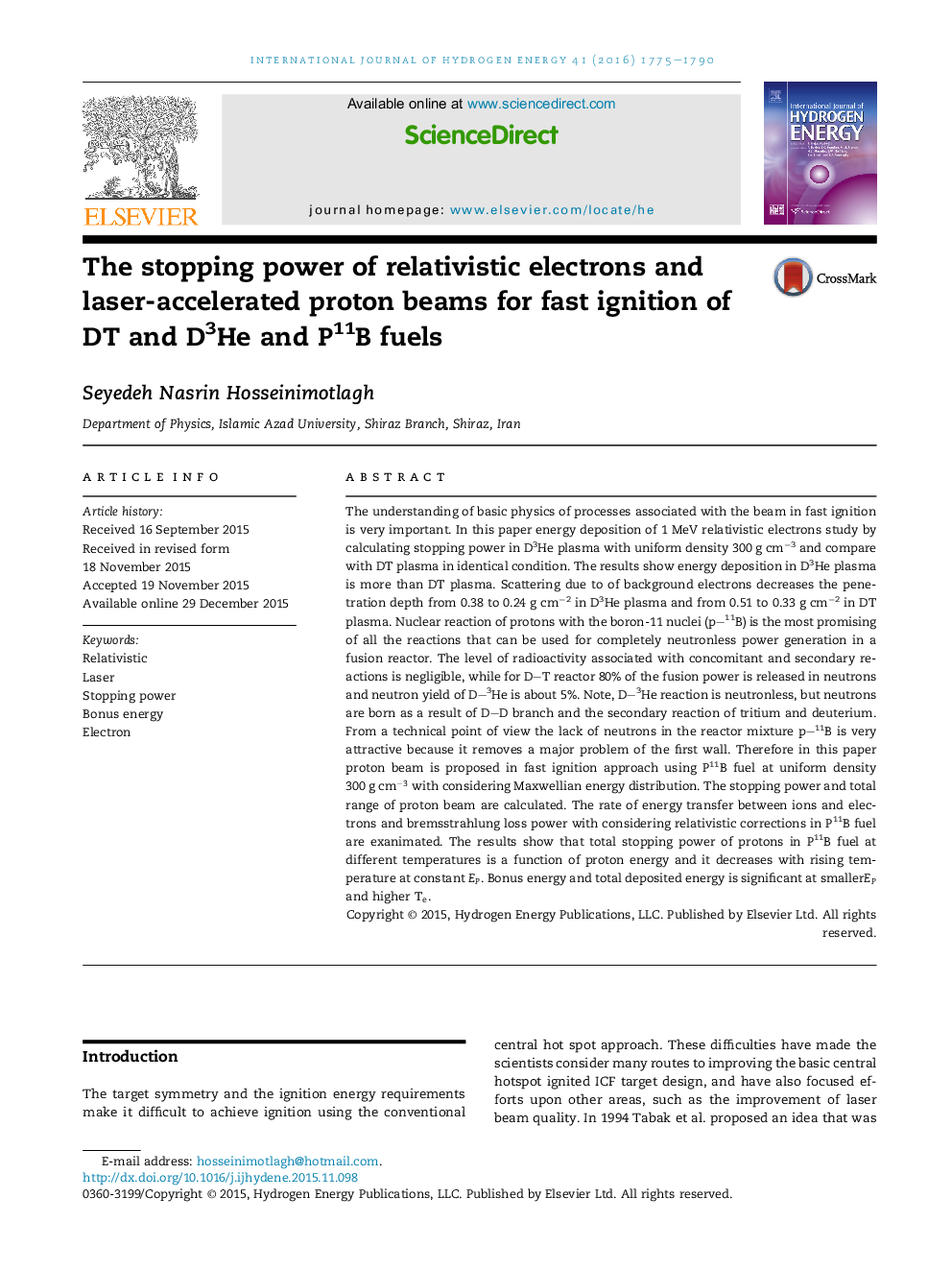| کد مقاله | کد نشریه | سال انتشار | مقاله انگلیسی | نسخه تمام متن |
|---|---|---|---|---|
| 7712347 | 1497422 | 2016 | 16 صفحه PDF | دانلود رایگان |
عنوان انگلیسی مقاله ISI
The stopping power of relativistic electrons and laser-accelerated proton beams for fast ignition of DT and D3He and P11B fuels
دانلود مقاله + سفارش ترجمه
دانلود مقاله ISI انگلیسی
رایگان برای ایرانیان
موضوعات مرتبط
مهندسی و علوم پایه
شیمی
الکتروشیمی
پیش نمایش صفحه اول مقاله

چکیده انگلیسی
The understanding of basic physics of processes associated with the beam in fast ignition is very important. In this paper energy deposition of 1 MeV relativistic electrons study by calculating stopping power in D3He plasma with uniform density 300 g cmâ3 and compare with DT plasma in identical condition. The results show energy deposition in D3He plasma is more than DT plasma. Scattering due to of background electrons decreases the penetration depth from 0.38 to 0.24 g cmâ2 in D3He plasma and from 0.51 to 0.33 g cmâ2 in DT plasma. Nuclear reaction of protons with the boron-11 nuclei (p-11B) is the most promising of all the reactions that can be used for completely neutronless power generation in a fusion reactor. The level of radioactivity associated with concomitant and secondary reactions is negligible, while for D-T reactor 80% of the fusion power is released in neutrons and neutron yield of D-3He is about 5%. Note, D-3He reaction is neutronless, but neutrons are born as a result of D-D branch and the secondary reaction of tritium and deuterium. From a technical point of view the lack of neutrons in the reactor mixture p-11B is very attractive because it removes a major problem of the first wall. Therefore in this paper proton beam is proposed in fast ignition approach using P11B fuel at uniform density 300gcmâ3 with considering Maxwellian energy distribution. The stopping power and total range of proton beam are calculated. The rate of energy transfer between ions and electrons and bremsstrahlung loss power with considering relativistic corrections in P11B fuel are exanimated. The results show that total stopping power of protons in P11B fuel at different temperatures is a function of proton energy and it decreases with rising temperature at constant EP. Bonus energy and total deposited energy is significant at smallerEP and higher Te.
ناشر
Database: Elsevier - ScienceDirect (ساینس دایرکت)
Journal: International Journal of Hydrogen Energy - Volume 41, Issue 3, 21 January 2016, Pages 1775-1790
Journal: International Journal of Hydrogen Energy - Volume 41, Issue 3, 21 January 2016, Pages 1775-1790
نویسندگان
Seyedeh Nasrin Hosseinimotlagh,